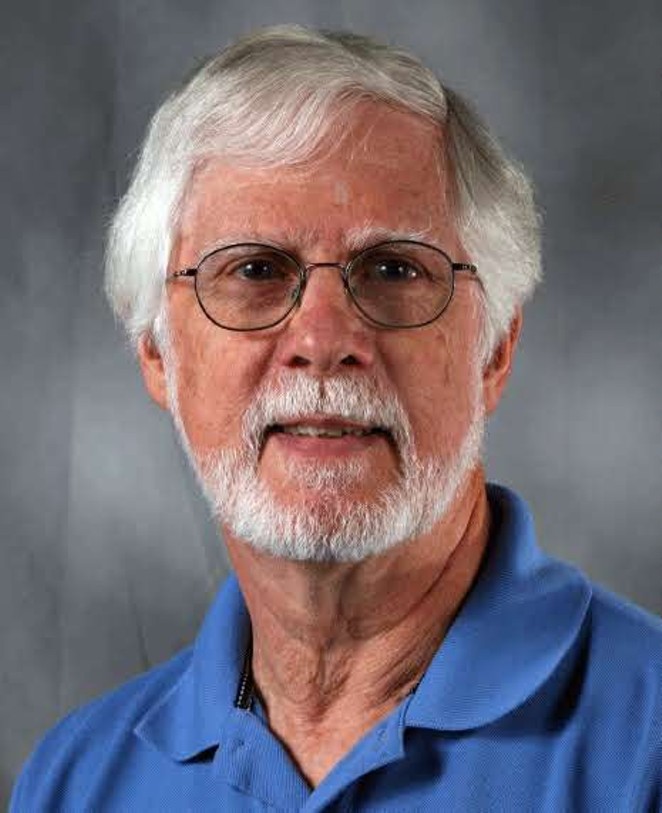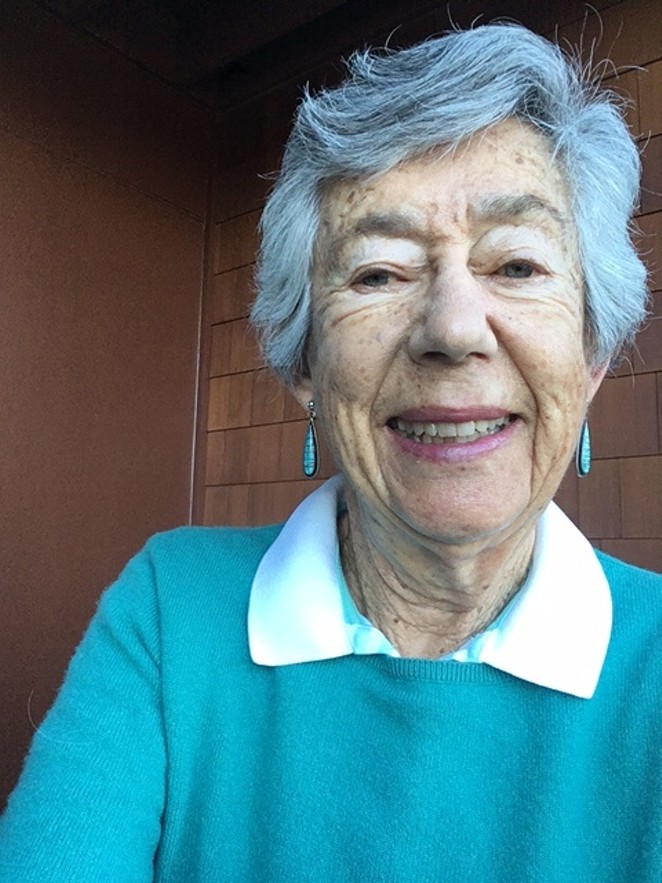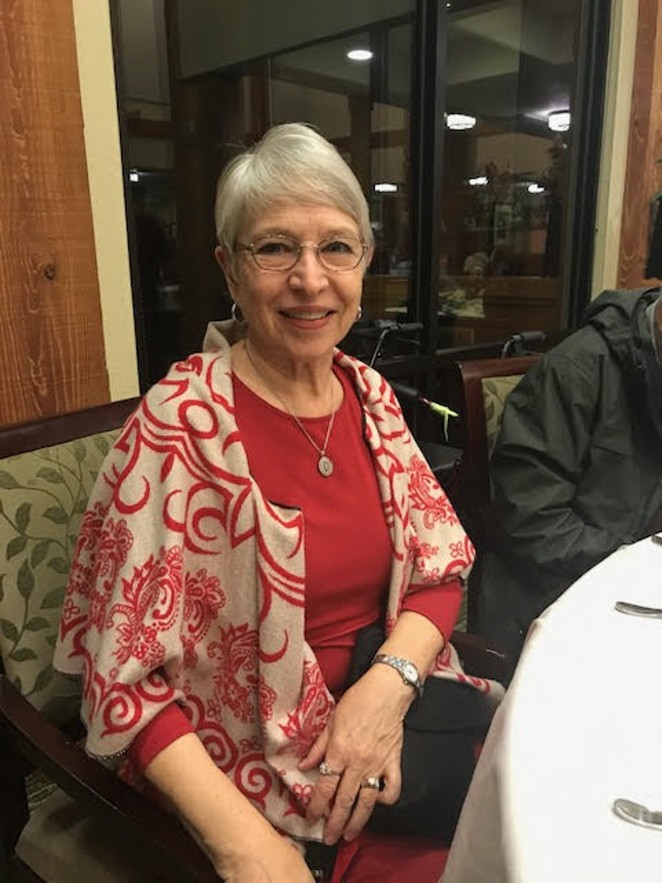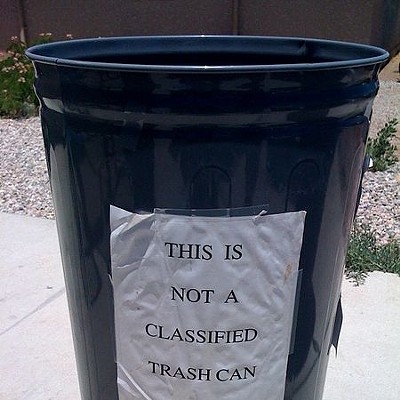During a
pandemic, nothing is "neutral" when it comes to being isolated.
COVID-19 changed the way we interact as families. Older adults are urged to
stay away from other people as much as possible, so visiting mom and dad is a
difficult option. Yet after months of being at home, many want to go out into
the world again.
Honest words were
relayed to me during a virtual forum at Central Oregon Community College,
"A Community Conversation About Race." During the event, I had the
pleasure of engaging with Touchmark Village at Mt. Bachelor Village residents,
Florence Beier, 91, Rosalind Davenport, 74, and Paul White 79,
and a fourth who decided not to be interviewed.
After the
original forum, we met every Friday for a month in the fall to discuss their
efforts in having open conversations about race. During the process, they led
four different discussion groups. The materials used for the discussion were
based on a racial history timeline of Oregon, current civic events, current
noteworthy books and articles on discriminatory segregation, police profiling
and systemic racism.
Beier, a journalist,
teacher, communication consultant, and mediator, engaged early in activism. In
1946 near the University of California-Los Angeles, she engaged in a
"sit-in" at a lunch counter near campus which refused to serve Black
students. This moment began her fight for social justice.
Davenport, was a 35-year
educator experienced as a classroom instructor, including K-12 and graduate
level instruction at UC-Berkeley Extension, and also served as an
administrator. Davenport was also
founding principal of a new school in Alameda, California that absorbed
Woodstock and two other small elementary schools. The school was named after
Ruby Bridges, the Civil Rights activist. Davenport had the honor of consulting
with and meeting Ms. Bridges during the initial months of the school’s
operations.
White is a
retired physicist who studied at the University of Texas at Austin, before
teaching at St. Edward’s University, and then moving to Los Alamos National
Laboratory in New Mexico. He worked on nuclear weapon design and in weapon
program management, served as a technical advisor to arms control negotiations
in Geneva, and the led the laboratory’s technical cooperation with Russian
nuclear laboratories.
The pandemic has made it extremely hard for this population and unfortunately, the public have not investigated how to connect with our older citizens. Having the ability to interact in an antiracist learning environment with people of varying backgrounds and disciplines allowed us to re-examine how our older population has always helped to impact change.
Marcus LeGrand:
I thought that we could start with a simple question to lay a foundation for
our conversation, but this first one has many complex explanations. You have
been isolated at Touchmark Village since March. What has been the most
difficult part for you and other residences?
Rosalind Davenport:
It has been hard for people here who do not have the technology or the
overall means to connect. The isolation has been extremely emotional and
finding ways to cope has been tough for me and other residents, especially for
those who are single or have a deceased spouse. I grew up in an affectionate
family, and not being able to hug my grandkids is hard, and the lack of touch
and contact weighs on you.
Florence Beier:
People our age and our families throughout history have experienced
challenges such as World War II, the Civil Rights movement in the '60s, and the
violence of recent years. It helps that we have a diversity of political points
of view here. I keep in touch with my family by electronics and hikes.
“This pandemic has been hard, but the perception is that the older population have lived their lives. What many do not understand is that we still have a lot of vitality and valuable insights to offer.”— Florence Beier
tweet this
Paul White: Having
a partner to share the day with is a big boost. Similarly, others that have
family close by or a day's drive away have a distinct advantage over others who
do not. And we see how this depresses many of our friends, and so do our best
to help one another.
ML: Being that
you cannot interact with the community in your normal fashion, what type of
activities are you engaged in to discuss issues locally and nationally?
RD: The more
positive aspect of living here is the people and being able to socialize. We
developed book clubs and discussion groups, which allowed us to have
conversations about Black Lives Matter and surviving during the paramedic. The Zoom
classes offered us an opportunity to engage in discussions with other
residents. At times we didn't all agree, but the conversations were so
necessary.
PW: The pandemic
has changed the way we live, and it's been difficult. Before we could easily go
knock on someone’s door and visit with one another, plus many of the residents
still want to be a part of the outside community. It is a risk to go out, but
we still want to walk trails or go grocery shopping. What we noticed is the
younger population was not wearing masks, potentially placing our population in
a difficult situation.
FB: This pandemic
has been hard, but the perception is that the older population have lived their
lives. What many do not understand is that we still have a lot of vitality and
valuable insights to offer. We miss the community groups where we normally
participate.
ML: Since you are not able to engage in your
normal manner, what advice would you give the community on how to engage with
the older population? Plus, what do you think will happen once COVID is over?
FB: The perception is that many people feel we
are old and not up to date on issues such as systemic racism. Plus, we can help
find solutions if they would only ask. Once we can get back out into the
community and invite others to Touchmark; we have a lot to contribute.
PW: A lot of us came to Touchmark because we
wanted to continue our full lives. It was sometimes hard for us to do this
living in single-family homes. We want to remain active and not just sit at
home. We treasure the opportunities to walk, to be out in natural environment,
and to and other ways to engage in the broader community. And now we see all
these restrictions taking place in a political environment in which we want to
engage, but in which extremely difficult to allow us to engage. So, when COVID
restrictions are over, I think it is going to be a boost in the area of racial
relations and social justice. I think older populations like us can draw on our
experience to help to bring awareness to the changes we need to make.
RD: Future after COVID-19, it's going to be a lot
of work to get people reconnected, to get small businesses back on their feet,
and it's hard to know what the path looks like. See, we have never been in this
situation before and fixing our community will take time. I believe there will
be a different conversation about healthcare and next year will be an
opportunity for change, different interactions with city leadership, and what
we have learned from this experience is going to be a great lesson.
-Marcus LeGrand is a community
leader and college administrator at Central Oregon Community College.


























